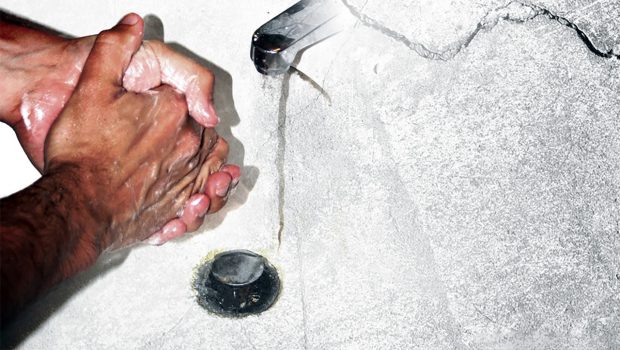Exposure Therapy can be Used for People with Treatment-Resistant Obsessive-Compulsive Disorder

In a study published in The Journal of Clinical Psychiatry, researchers initially tested the exposure therapy in addition to pharmacotherapy.
As per the new studies of the psychiatrists from the Perelman Medical School of the University of Pennsylvania, when the common pharmacotherapy options fail in patients with Obsessive-Compulsive Disorder (OCD), it is possible to substantially diminish the symptoms if the exposure and response prevention therapy is added to the current treatment. The exposure/response prevention therapy is a type of cognitive behavior therapy, through which the patient is asked to face the triggers causing the obsessions in order for the patient to abstain from doing the rituals as a response to these obsessions.
OCD points out the “rituals” in order to reduce the patient’s stress related to their obsessions, such as excessive washing of hands in order to cope with the hand hygiene fixation.
“We know that the exposure and response prevention therapy can be useful for these patients,” says Carmen Mclean, a clinical psychology professor in the Department of Psychiatry at the Center for the Treatment and Study of Anxiety and the lead author of the article. “However, it has been shown that these two therapies are also quite effective for OCD patients who could not get enough benefits from common pharmacotherapies.”
A previous study compared the effects of adding 17 exposure and response prevention therapy sessions, which were directed by a therapist twice a week, to the Risperdal and Placebo pills for an OCD medicine. “We found that the symptoms and depression had a considerable level of reduction in the patients that received the exposure and response prevention therapy, which was followed by a substantial increase in the insight, quality of life and social functions only after 8 weeks, compared to the patients that received medication or placebo,” says Dr. McLean.
The current study included 32 patients, who received 17 weeks of exposure and response prevention therapy sessions after they could not get any benefits from Risperdal. It was observed that the symptoms improved in the evaluations made in weeks 12 and 16; 25 patients (78%) completed the treatment; in the 32-week follow-up evaluation, 17 (53%) were classified as responsive and 11 (34%) as perfectly responsive. For the remaining patients, however, it was required to change the medicines in order for them to be included in the status called perfectly responsive.
This study contributes to a wider group of research that shows the benefits of the exposure therapy for OCD patients. “We want the patients to know that there is another option if the pharmacotherapy fails,” explained Dr. Edna Foa, one of the authors of the study, and added “The therapy could be a life saver if the patients have awareness.”
REFERENCES:
“Exposure and Response Prevention Helps Adults With Obsessive-Compulsive Disorder Who Do Not Respond to Pharmacological Augmentation Strategies” Carmen P. McLean, PhD; Laurie J. Zandberg, PsyD; Page E. Van Meter, PhD; Joseph K. Carpenter, BA; Helen Blair Simpson, MD, PhD; and Edna B. Foa, PhD in Journal of Clinical Psychiatry. Published online November 2015 doi:10.4088/JCP.14m09513
Photo: Lars Klintwall Malmqvist.












